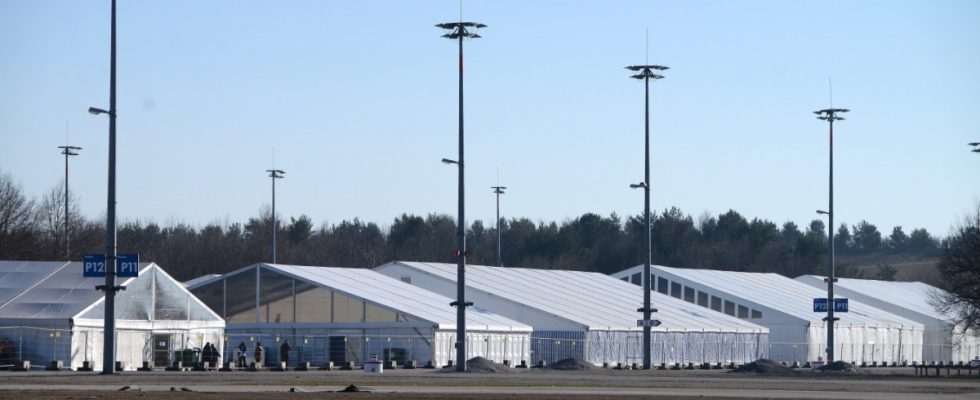The city is demanding more money, more state-owned land and houses, and more justice in distribution in order to be able to better accommodate and care for all the refugees who arrive in Munich. Most factions in the city council are unanimous on this. The addressees for these demands are meeting this Wednesday in Berlin: the federal and state governments want to talk at a summit about the distribution of the refugees and the allocation of funds. Cities and counties will not sit at the negotiating table. “Unfortunately, we have seen in the past that the municipalities are often left alone here,” said Mayor Verena Dietl (SPD).
The municipalities “stepped in with acute care and accommodation and have achieved great things, but now better permanent refinancing is needed, especially in order to be able to cover personnel expenses and costs in the long term,” Dietl demanded. All political levels must pull together. Social officer Dorothee Schiwy (SPD) hopes that the federal and state governments will finance the high personnel costs in the future and “not just grant individual special payments”.
Schiwy and Diel, like their SPD parliamentary group leader in the city council, Anne Hübner, are demanding that the distribution of refugees be reorganized nationwide. She would like a “clearer line” and a planned approach to refugee policy, said Hübner. Space is running out in the conurbations, the cramped location in big cities makes it “increasingly difficult for refugees to gain a permanent foothold and thus find good prospects, since there is a lack of apartments, daycare places and space in educational institutions,” said her party colleague Schiwy.
The Free State must make more land available
Above all, the Greens see the Free State of Bavaria as responsible. City Councilor Clara Nitsche said that the federal government is largely covering the costs of taking in people in Ukraine. The personnel costs in the three-digit million range for logistics, support and operation of the accommodation, which Munich is currently bearing, would have to be paid for by the state. This also applies to the “on standby” rooms that the city has to keep in order to be able to take in more refugees at any time. Last but not least, the Free State must also increasingly make state-owned land or buildings available.
In addition to more money, that is also his main demand, said Left Party leader Stefan Jagel. However, he also requires the federal government to provide more state real estate. His colleague from the ÖDP, Tobias Ruff, sees it that way too. He sees “the biggest bottleneck in Munich” in the lack of real estate. Before the summit, the CSU is demanding more money for the municipalities and a tougher approach to the asylum issue. For parliamentary group leader Manuel Pretzl, this includes “faster returns of rejected asylum seekers” and stronger protection of the EU’s external borders, “especially with regard to people with no prospect of asylum or residence”.
Like the Greens, the FDP, in contrast to the Berlin traffic light partner SPD, sees responsibility above all in the Free State. “We’re not joining the chorus of those who are demanding more money from the federal government,” said parliamentary group leader Jörg Hoffmann. In his opinion, the finances are not the main problem anyway, but the lack of space and the receptiveness of the individual municipalities. “You can’t fill that up with more money.” Every single municipality in Bavaria must make its contribution. “Munich doesn’t need to hide itself with the accommodation that is planned or under construction,” said Hoffmann.

